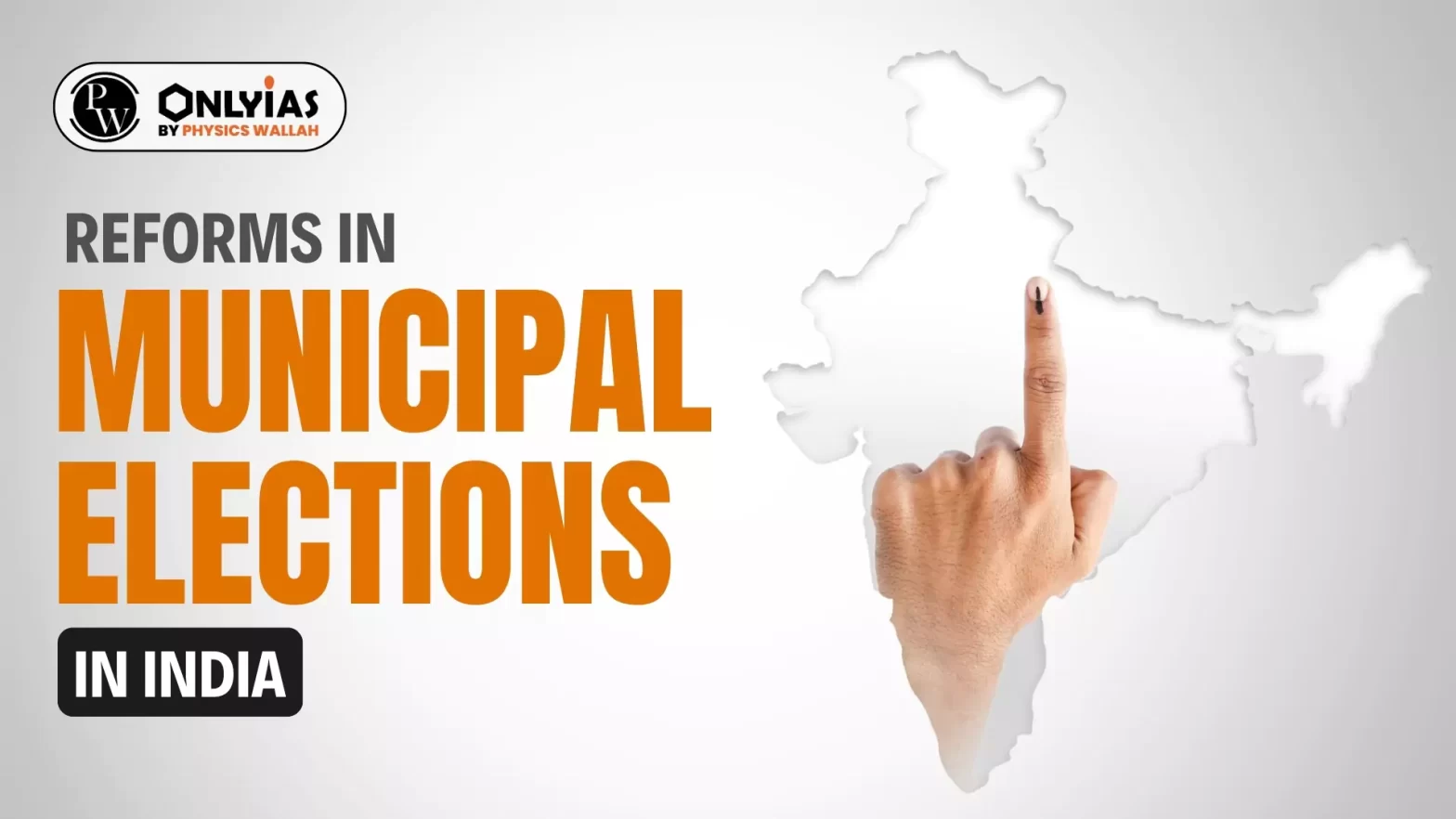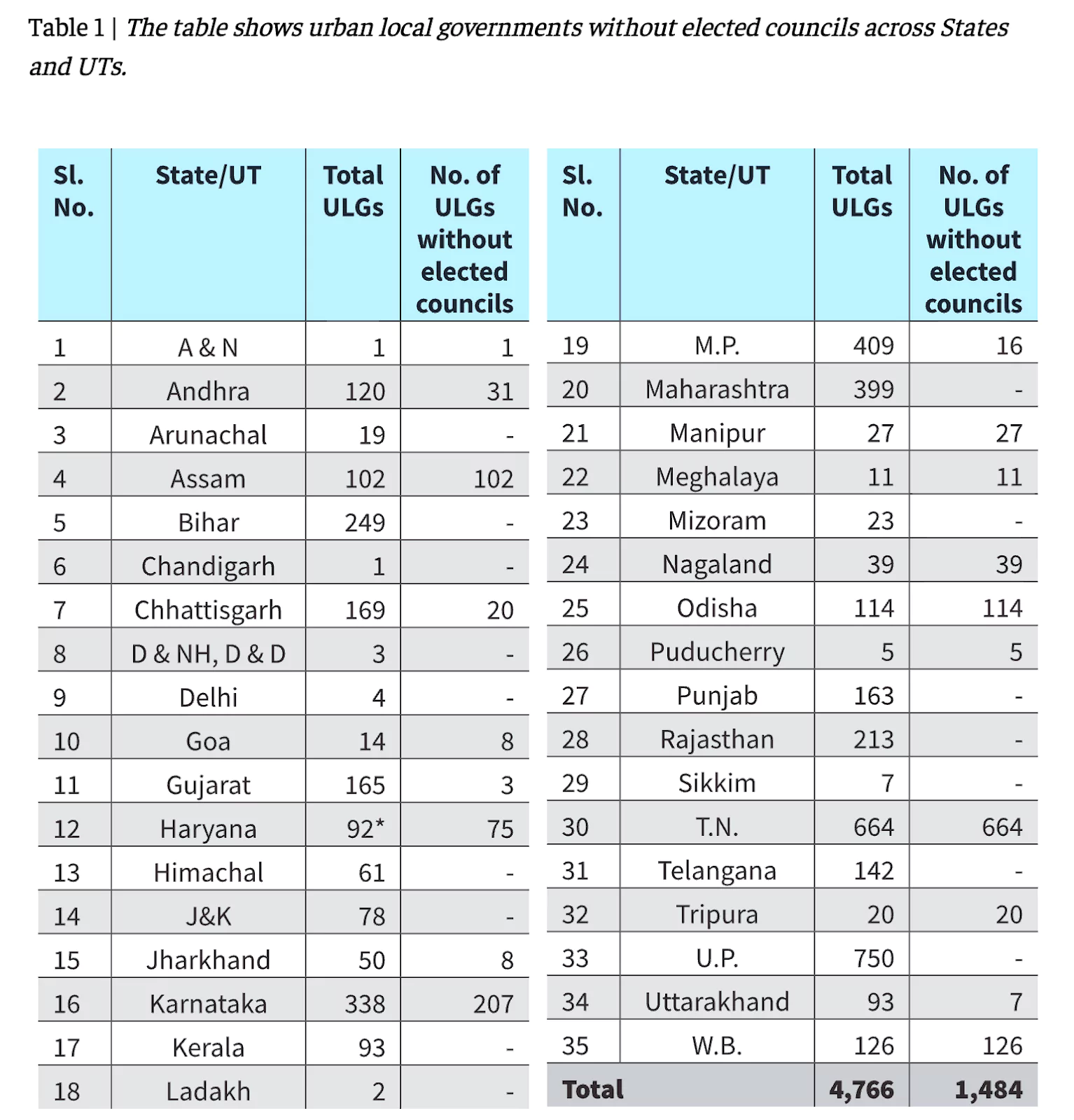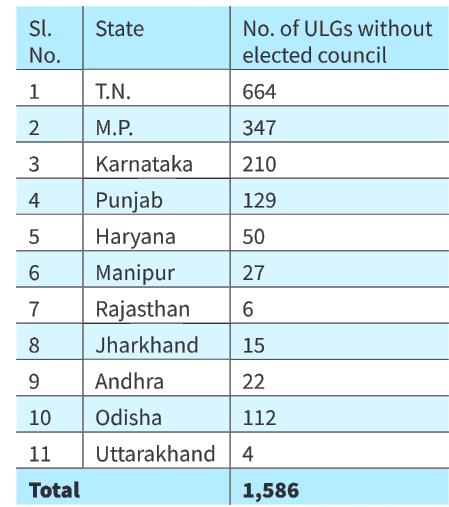![]() 20 Apr 2024
20 Apr 2024
English
हिन्दी

The Supreme Court judgment on the Chandigarh mayor election bringing the issues associated with the elections to municipalities in news.
| Relevancy for Prelims: Municipalities In India, Election Commission Of India, Election Commissioners, One Nation One Election, Intra Party Democracy In Indian Political Parties, Bill on Appointing Chief Election Commissioner and Other Election Commissioners, and Limits On Election Campaign Spending.
Relevancy for Mains: Reforms in Municipal Elections in India: Challenges and Issues. |
|---|
About Mayor
About Article 142
|
|---|

 In Karnataka, there was a delay of 12-24 months in the formation of elected councils after the declaration of election results in most of the city corporations.
In Karnataka, there was a delay of 12-24 months in the formation of elected councils after the declaration of election results in most of the city corporations.
| Prelims PYQ (2019):
With reference to the Constitution of India, prohibition or limitations or provisions contained in ordinary laws cannot act as prohibitions or limitations on the constitutional powers under Article 142. It could mean which one of the following? (a) The decisions taken by the Election Commission of India while discharging its duties cannot be challenged in any court of law. (b) The Supreme Court of India is not constrained in the exercise of its powers by laws made by the Parliament. (c) In the event of grave financial crisis in the country, the President of India can declare Financial Emergency without the counsel from the Cabinet. (d) State Legislatures cannot make laws on certain matters without the concurrence of Union Legislature. Ans: (b) |
|---|
| Must Read | |
| NCERT Notes For UPSC | UPSC Daily Current Affairs |
| UPSC Blogs | UPSC Daily Editorials |
| Daily Current Affairs Quiz | Daily Main Answer Writing |
| UPSC Mains Previous Year Papers | UPSC Test Series 2024 |
<div class="new-fform">
</div>